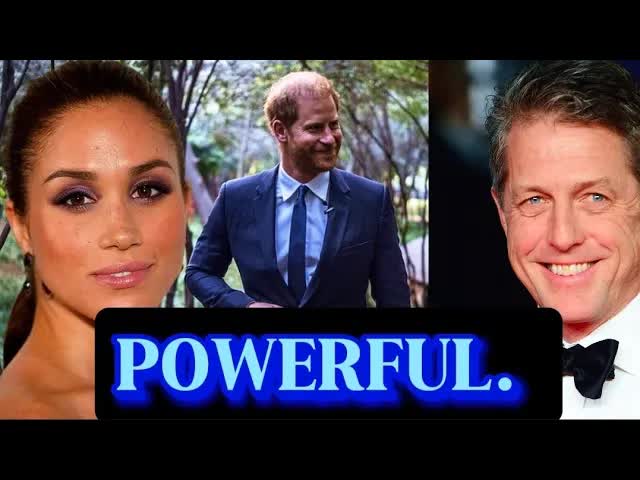In a bold move that has captured public attention, Prince Harry is waging a determined battle against the Murdoch media, advocating for truth and privacy in an industry notorious for its sensationalism.
This fight is not merely a personal vendetta; it’s deeply rooted in the tragic loss of his mother, Princess Diana, who was relentlessly pursued by the paparazzi until her untimely death.
Harry’s quest for justice reflects a broader struggle for dignity and ethics in journalism.
Harry’s anger towards the press is palpable.
He believes that the media played a significant role in the circumstances leading to his mother’s death, as they chased her through the streets of Paris, flashing cameras in her face.
This relentless pursuit, he argues, contributed to a chaotic situation that could have been avoided.
In Harry’s eyes, taking on the press is not just brave; it’s heroic.
His mission is fueled by a desire to protect his family from the same fate that befell Diana.
At the core of Harry’s campaign is a desire to expose the harmful practices that tabloids employ.
He seeks to hold powerful media figures accountable for their actions, advocating for a landscape where ethical standards are not just an afterthought but a fundamental principle.
His fight resonates with many who have suffered at the hands of intrusive media, making him a beacon of hope for victims of tabloid exploitation.
The Murdoch media empire, particularly through its tabloids like The Sun and the now-defunct News of the World, has long been associated with unethical practices.
Their history is marred by scandals involving phone hacking, bribery, and intimidation, all in the name of profit.
These tactics have caused significant harm not only to individuals but also to the integrity of journalism as a whole.
Harry’s challenge to this toxic culture is a call for change that extends beyond his personal experiences.
Supporting Harry in this uphill battle is actor Hugh Grant, who knows firsthand the toll that tabloid intrusion can take.
Having been a victim himself, Grant’s phone was hacked by journalists from the News of the World, which ignited his advocacy for media reform.
His involvement adds weight to Harry’s cause, as both men unite against a common adversary, illustrating that media harassment affects not just the famous but anyone in the public eye.
The bond formed between Harry and Grant is emblematic of a larger movement against tabloid excesses.
Together, they represent a collective voice advocating for privacy and accountability in journalism.
Their collaboration shines a spotlight on the widespread nature of media intrusion, reinforcing the idea that this issue transcends wealth and status.
They stand firm against intimidation and refuse to be silenced, inspiring others to join their cause.
Princess Diana’s legacy looms large over Prince Harry’s fight.
Her tragic death serves as a constant reminder of the dangers posed by invasive media practices.
Harry witnessed the emotional toll that such scrutiny took on his mother, and he is resolute in his mission to prevent similar tragedies from occurring again.
By channeling his grief into action, he honors her memory while striving to create a safer environment for his family.
The phone hacking scandal that engulfed the Murdoch empire highlighted the depths of unethical behavior within tabloid journalism.
It revealed a shocking disregard for privacy and the law, as journalists resorted to extreme measures to obtain information.
Harry’s legal actions against the Murdoch media are part of a broader effort to expose these wrongdoings and seek justice for those affected.
His lawsuits aim not just to reclaim his narrative but also to set a precedent for future accountability.
As Harry continues his legal battles, he emphasizes the importance of ethical standards in journalism.
He calls for an end to sensationalism and misinformation, demanding that the media operate with integrity and respect for individual privacy.
His message is clear: the pursuit of profit should never come at the expense of truth.
By advocating for higher ethical standards, Harry envisions a future where journalism serves the public good rather than exploiting its subjects.
Public support for Harry’s stance has been overwhelming, as many rally behind him in his fight against tabloid intrusion.
This backing is crucial, as it reflects a growing awareness of the harm caused by sensationalist media practices.
By taking a stand, Harry has not only humanized the royal family but also challenged long-standing perceptions about the monarchy’s relationship with the media.
His courage has sparked a vital conversation about the need for reform.
The ripple effect of Harry’s courageous stand is already being felt across the media landscape.
His actions have inspired others to share their stories of media abuse, fostering a collective movement toward accountability.
Public figures are increasingly willing to confront tabloid harassment, while journalists are advocating for ethical practices within their own ranks.
This shift is gradually changing the dynamics of power, empowering victims of media abuse to speak out.
Looking ahead, Harry’s fight against the Murdoch media offers a glimpse into a future where truth and respect are paramount in journalism.
This vision calls for a fundamental change in how media operates, prioritizing factual reporting over sensationalism.
Achieving this goal will require a concerted effort from all stakeholders, including journalists, media organizations, and the public, to reject unethical practices and demand better standards.
Ultimately, Prince Harry’s enduring impact on media ethics will be defined by his resilience and unwavering commitment to justice.
His battle against the Murdoch media is not just a personal crusade; it represents a larger fight for a fairer and more accountable media landscape.
As conversations around media ethics continue to evolve, Harry’s legacy will serve as a reminder of the importance of truth, accountability, and the protection of individual privacy.
